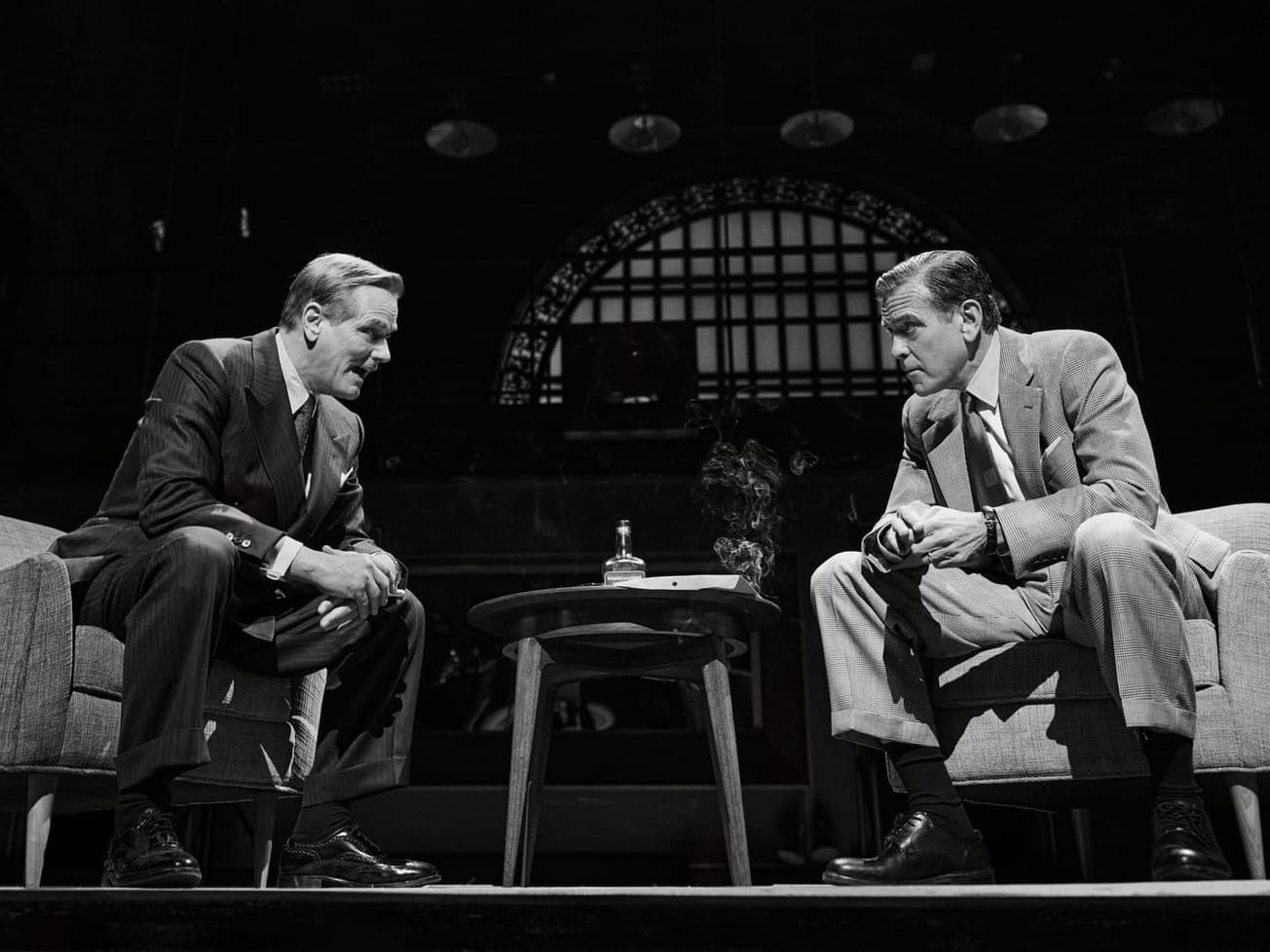As played by actor Blake Roman in Broadway’s “Harmony,” Erwin Bootz — or as his character was nicknamed, Chopin — comes off as a bit of a rebel and a free spirit. That sense of independence seems to be true of the real Erwin Bootz.
Bootz was born and raised in Stettin, Germany. His parents owned a record shop and his father sold gramophones. Surrounded by music at a young age, Bootz began playing piano at age four, teaching himself to master the keys. By age 13, he attended the local, yet prestigious, Loewe Conservatory. He grew up on the classics, Liszt and Strauss and Chopin. But Bootz felt pulled to other styles of music, which led him to Berlin.
“He wanted to become one of those people that performed in the cabaret scene,” Roman said. “They seemed so worldly and so knowledgeable and so grounded, and they had all the answers, which, coming from a pretty well-to-do family, being in a conservatory setting, playing classical music for such a good portion of his life, I feel like he was definitely wanting to lean more toward that liberated element, to the art.”
And Bootz successfully made it to the cabaret scene. He played as a pianist in clubs and restaurants, including one where Ari Leschnikoff worked as a singing server. Leschnikoff was already rehearsing with the Comedian Harmonists and recruited Bootz.
In the musical, “Chopin” says he got his nickname from a woman while “playin’ in a whorehouse.” In truth, Bootz’s nickname was Winchen (pronounced “Veen-chyin”) for “little Erwin” — taking the “win” from his name and “chen,” the diminutive suffix in German. After all, Bootz was the youngest member of the Comedian Harmonists. Also contrary to his onstage portrayal, he never played in brothels, to anyone’s knowledge.
But Bootz’s experience in cabarets certainly influenced him and, therefore, the Comedian Harmonists. “They appeared not only with classical songs, but even with popular songs of that time and with classical folk songs from Germany,” said podcast historian Jan Grübler. “Then, mostly, it was a part of Bootz’s [job] to arrange them.”
Not only did Bootz write arrangements, he served as the group’s music director and composed songs for them. “He actually wrote one of the first songs that put the group on the map,” Roman said. Bootz had a heavy influence on the Comedian Harmonists’ sound, but more as their pianist than a vocalist.
In “Harmony,” the group sings six-part close harmonies. In reality, the Comedian Harmonists were a five-part harmony ensemble; Bootz accompanied them and sang from time to time, but rarely on his own vocal line.
There is one other significant difference between Bootz and “Chopin.” The onstage character falls in love with and marries Ruth, a Jewish political activist and member of the Communist party in Berlin. In reality, Bootz did marry a Jewish woman, but her name was Ursula Belkan. Belkan was no rabble-rouser. In fact, she wasn’t Bootz’s only wife. The couple divorced and Bootz would go on to marry two more times in his life.
To learn the details of Bootz’s life, including stories from his childhood, the time he left and rejoined the Comedian Harmonists and details about his romances, listen to the seventh episode of “Who Were the Comedian Harmonists? The True Story Behind Broadway’s ‘Harmony’”:
Want to know the specifics of the fortune and fate of the group and its members? Listen to the full debut episode of “Who Were the Comedian Harmonists? The True Story Behind Broadway’s ‘Harmony’” with the player above or download and subscribe to the podcast on platforms including Spotify and Apple Podcasts. New episodes of “Who Were the Comedian Harmonists?” (produced by Broadway News and “Harmony” A New Musical and edited by Daniel Piñeiro) are released on Wednesdays.
Listen to the podcast’s trailer here.
Listen to “Episode 1: The Comedian Harmonists” here.
Listen to “Episode 2: Harry Frommermann, the founder” here.
Listen to “Episode 3: Erich Collin, the intellectual” here.
Listen to “Episode 4: Josef Roman Cycowski, the peacemaker” here.
Listen to “Episode 5: Robert Biberti, the manager” here.
Listen to “Episode 6: Ari Leschnikoff, the nightingale” here.


























































